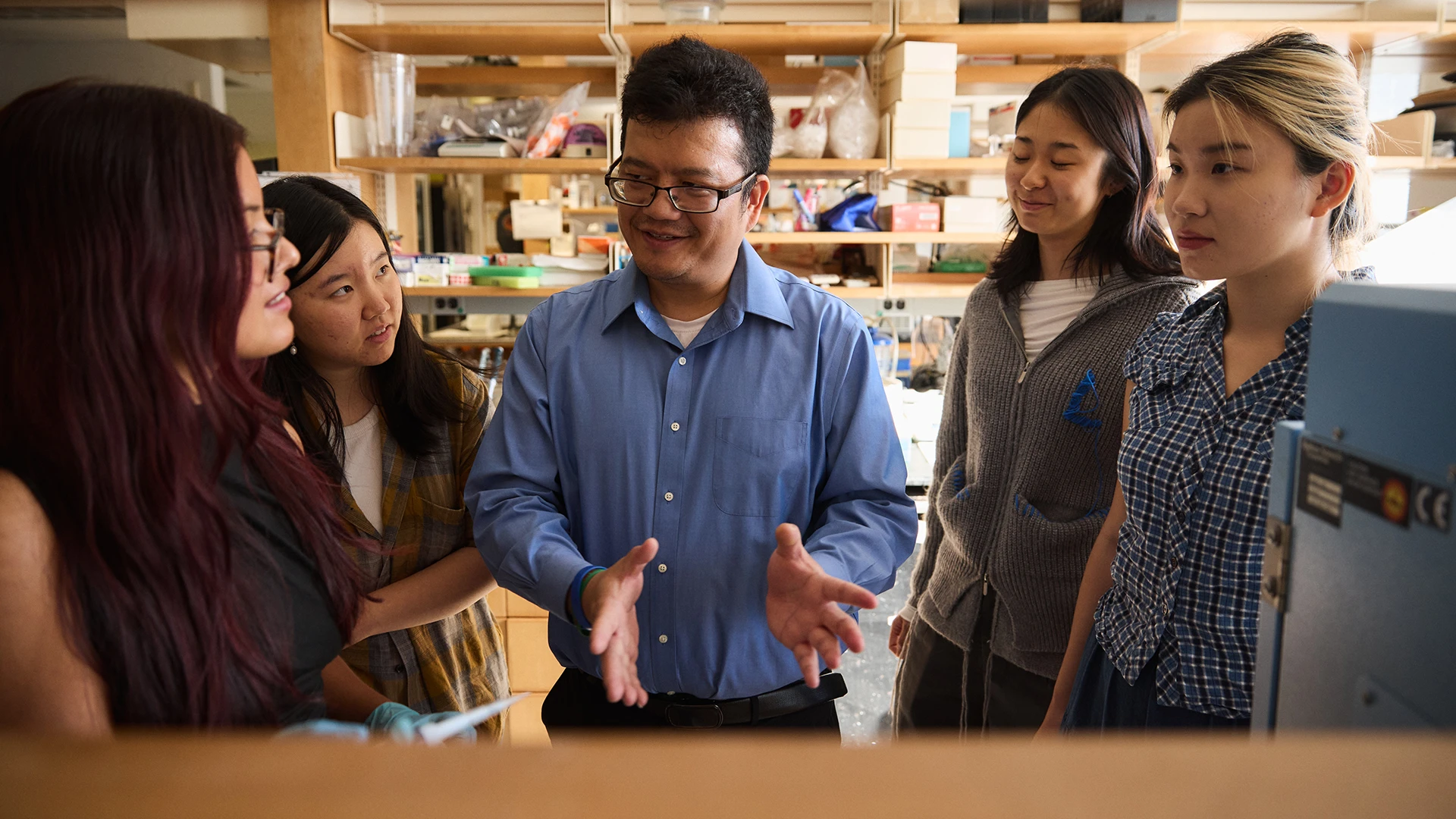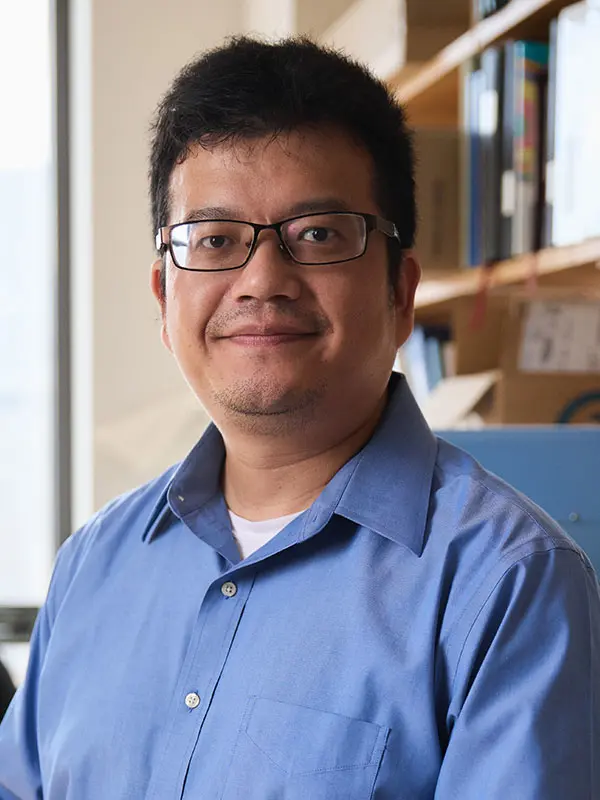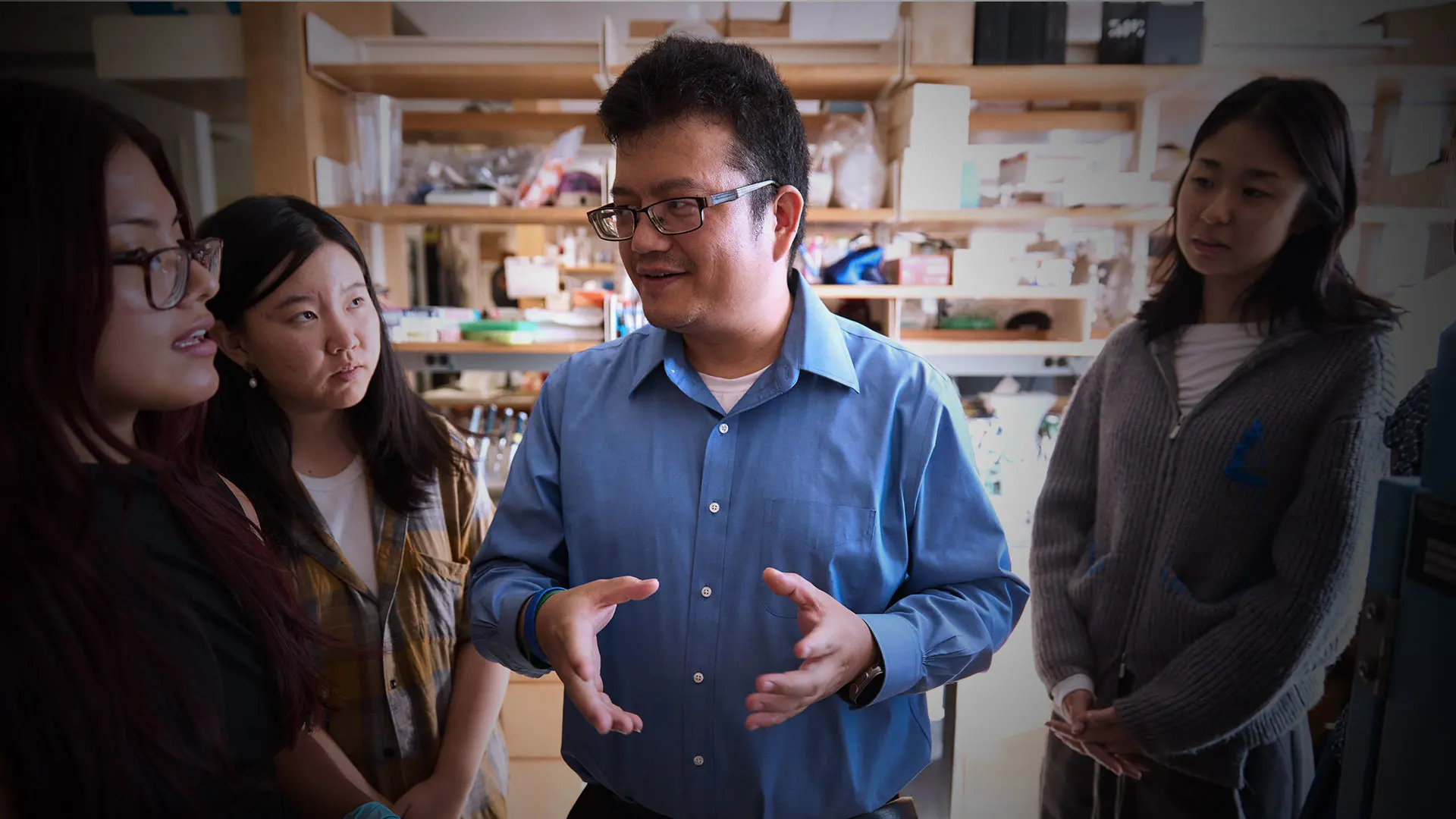A healthful diet is essential for managing metabolic dysfunction-associated steatotic liver disease (MASLD) and its more severe form, metabolic dysfunction-associated steatohepatitis (MASH). Yet overhauling dietary patterns is challenging—especially for people experiencing health disparities who lack resources and access to better nutrition.
Researchers at the Icahn School of Medicine at Mount Sinai and collaborators at the City University of New York (CUNY) Graduate School of Public Health & Health Policy and Weill Cornell Medicine are launching an innovative new program to address this issue. The program will deliver medically tailored meals to people with steatotic liver disease to make behavioral lifestyle changes more achievable.
“Food is medicine,” says Xiaotao (Rony) Zhang, MD, PhD. Dr. Zhang is Assistant Professor of Medicine (Liver Diseases) at the Icahn School of Medicine and Director of the Mount Sinai Bionutrition Research Core (MSBRC), which provides comprehensive support services for nutritional research studies, including nutrition assessment, dietary intervention design, data analysis, and education. Dr. Zhang is collaborating on a project to make “culinary medicine,” as he calls it, more accessible to patients with liver disease.
The 2024 approval of the MASH drug resmetirom presented an opportunity to approach the disease in a new way, adds Jeffrey V. Lazarus, PhD, MIH, Professor of Global Health at the CUNY Graduate School of Public Health & Health Policy and an adjunct faculty member at the Icahn School of Medicine, who initiated this study. While the drug’s emergence is an important milestone, its relatively low efficacy rates leave room for improvement.
“We need to figure out how to leverage the drugs to get better outcomes—and we know that nutrition and physical activity can help stop or even reverse liver fibrosis in MASLD,” Dr. Lazarus says.
To leverage that new drug and others in the development pipeline, he looked to the history of early treatments for HIV and viral hepatitis. Many patients had poor adherence to those drugs because they were juggling so many other social needs, including challenges with housing, jobs, and food security. Doctors and drugmakers stepped in to increase support systems for patients and provide harm-reduction services, leading to better outcomes, Dr. Lazarus says.
Inspired by that public health success, he and his colleagues reached out to Madrigal Pharmaceuticals, the maker of resmetirom, to propose a nutrition program aligned with the rollout of its new drug. They are preparing to launch a randomized clinical trial to test the program at several pilot sites, including the Icahn School of Medicine. Meena Bansal, MD, Professor of Medicine and System Chief of the Division of Liver Diseases at the Icahn School of Medicine, will serve as Mount Sinai’s trial lead.

The MASH nutrition project team includes, from left, clinical research coordinator Maryfe Coronel; research intern Yunxi Pu; Dr. Zhang; research intern Ruoyan Pan; and biostatistician Yulu (Lulu) He, MS.
Social Prescribing for Public Health
During the trial, participants with MASH who are taking resmetirom will receive two medically tailored meals each weekday, delivered to their homes. For the week’s remaining meals, clinical dietitians will provide participants with education and guidance for preparing healthful meals. The dietitians will ensure that recipes are suitable for the patient’s skill level and include culturally appropriate, locally available ingredients.
The trial’s meals and recommendations are based on the core principles of a Mediterranean diet—vegetables, fruits, whole grains, legumes, and healthful fats—but suited to the cultural preferences of participants. For example, for patients with Central American heritage, meals might focus on black and pinto beans rather than chickpeas or other legumes more common in a traditional Mediterranean diet.
Through the MSBRC, Dr. Zhang and his colleagues will help design the nutritional features of the medically tailored meals and develop assessments to capture participants’ dietary habits. “Home delivery of medically tailored meals solves a lot of issues with access to healthful food options,” Dr. Zhang says. “This program is a great opportunity not just to improve liver health, but also to address health care disparities and barriers around food security and access to care.”
The role of diet in MASLD and MASH is well established, and lifestyle interventions to improve nutrition and promote weight loss have been shown to reduce fat in the liver. The new trial aims to demonstrate that, together with MASH drug treatment, such interventions can further improve outcomes by addressing some of the social determinants of health that interfere with eating well.
“It’s not enough to tell people to eat better and exercise more if they don’t have access to nutritious food options and safe green spaces,” Dr. Lazarus says. “In this trial, we’re paying due attention to context—not just telling patients to take a drug, but also helping them get nutritious food and make healthful lifestyle changes.”
If the trial proves successful in reducing complications from MASH and improving patient health, it could lead to new models of treatment for liver disease, he adds. Drug companies may decide to provide their patients with nutrition services, knowing that dietary support could result in greater efficacy rates for their drugs. The findings might also inspire more health systems to cover the costs of nutrition services to patients being treated by their liver specialists—services that are currently underutilized because they are not always reimbursed by insurance.
Dr. Zhang’s work with the MSBRC is designed to accelerate those types of real-world impacts through research collaborations that drive innovative nutrition research and promote evidence-based dietary interventions. This research goes beyond the basics to investigate new directions, such as the role of the microbiome in diseases such as MASLD.
“There’s still much to learn about the role of diet and nutrition in health and disease, but there is a lot we already know,” Dr. Zhang says. “As a field, we could be doing more to teach physicians and medical students about the importance of nutritional medicine so they can better help their patients.”
The incidence of MASLD is growing, with experts projecting that by 2050, more than 41 percent of U.S. adults will have developed the disease.
“This is a huge public health issue. New drugs for liver disease will make a difference for many people, but we’re still a long way off,” Dr. Lazarus says. “We need to address the social and commercial determinants of health and examine how to better support patients in changing their lifestyles.”
Featured

Xiaotao (Rony) Zhang, MD, PhD
Assistant Professor of Medicine (Liver Diseases)
